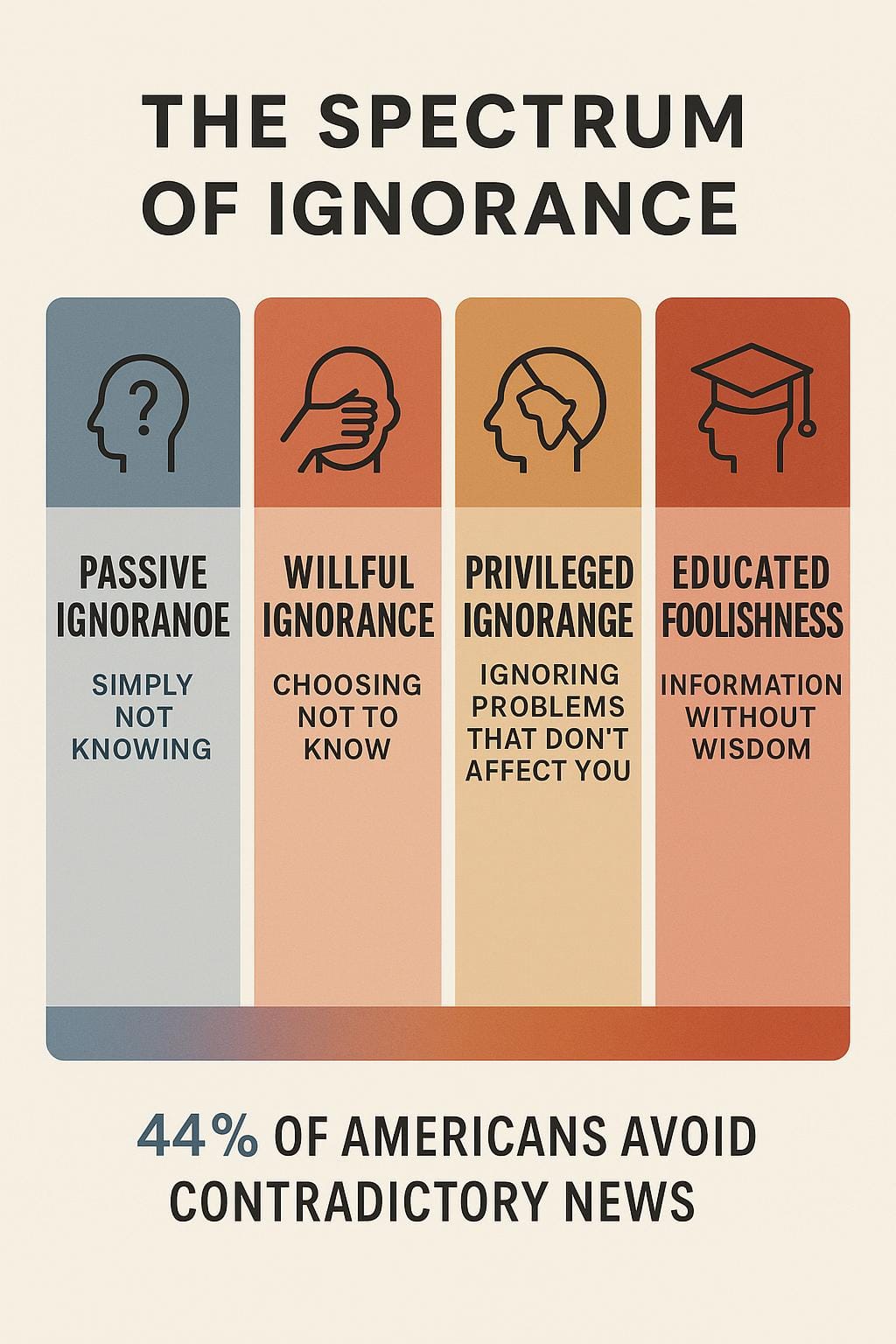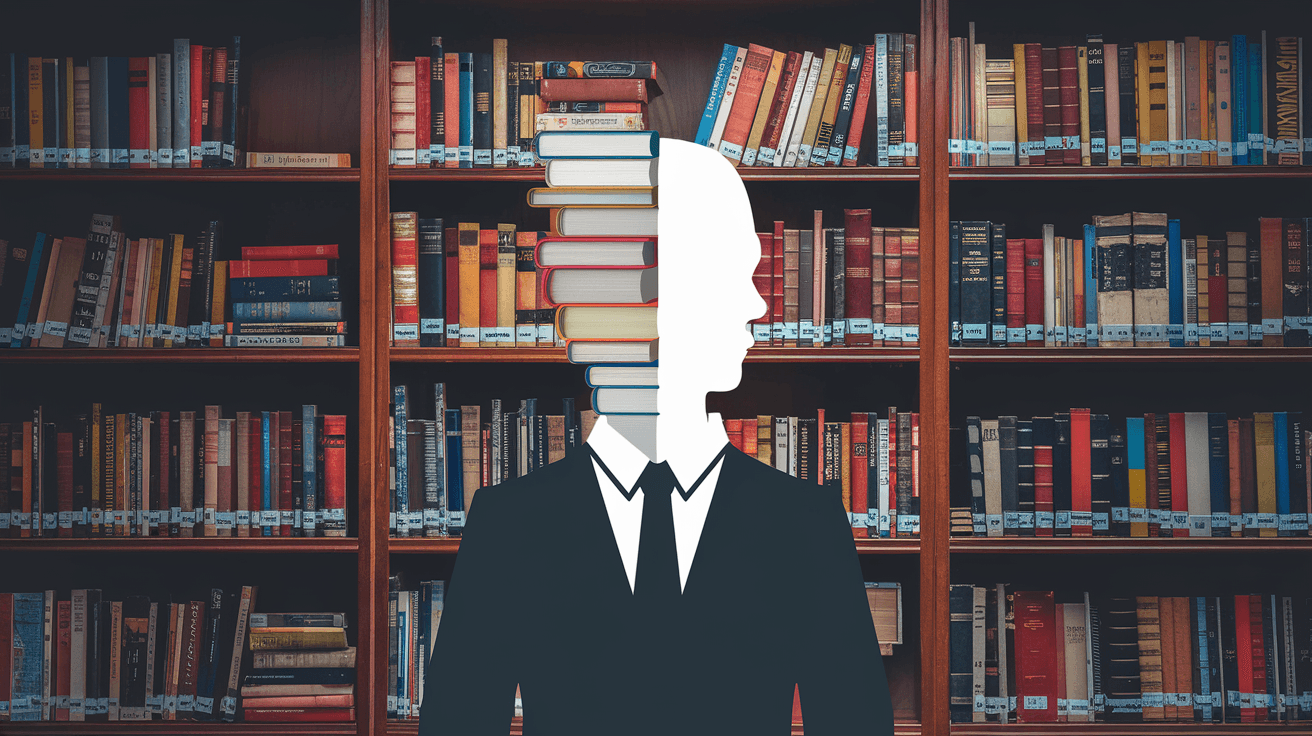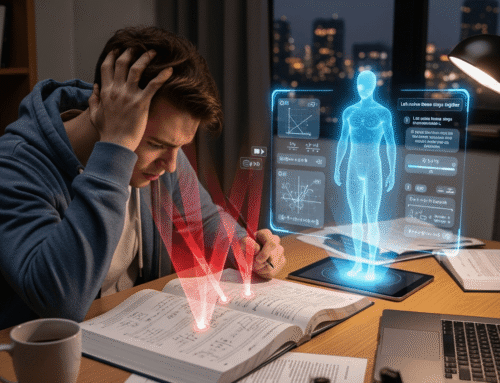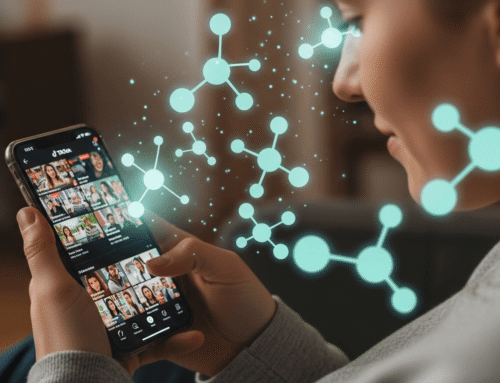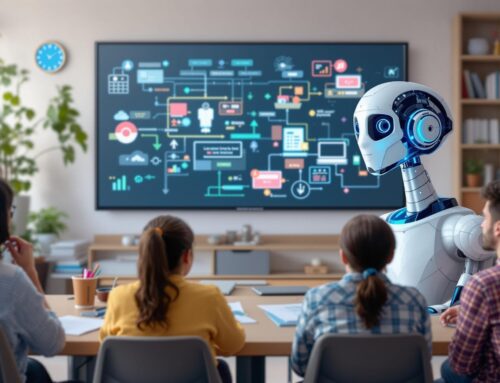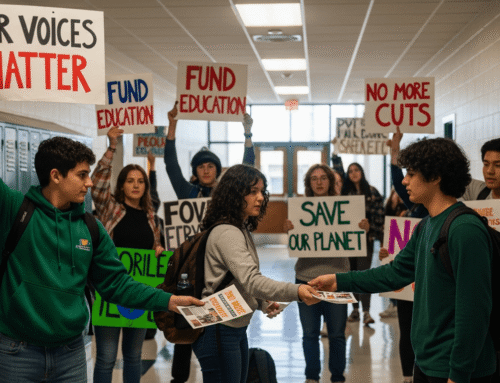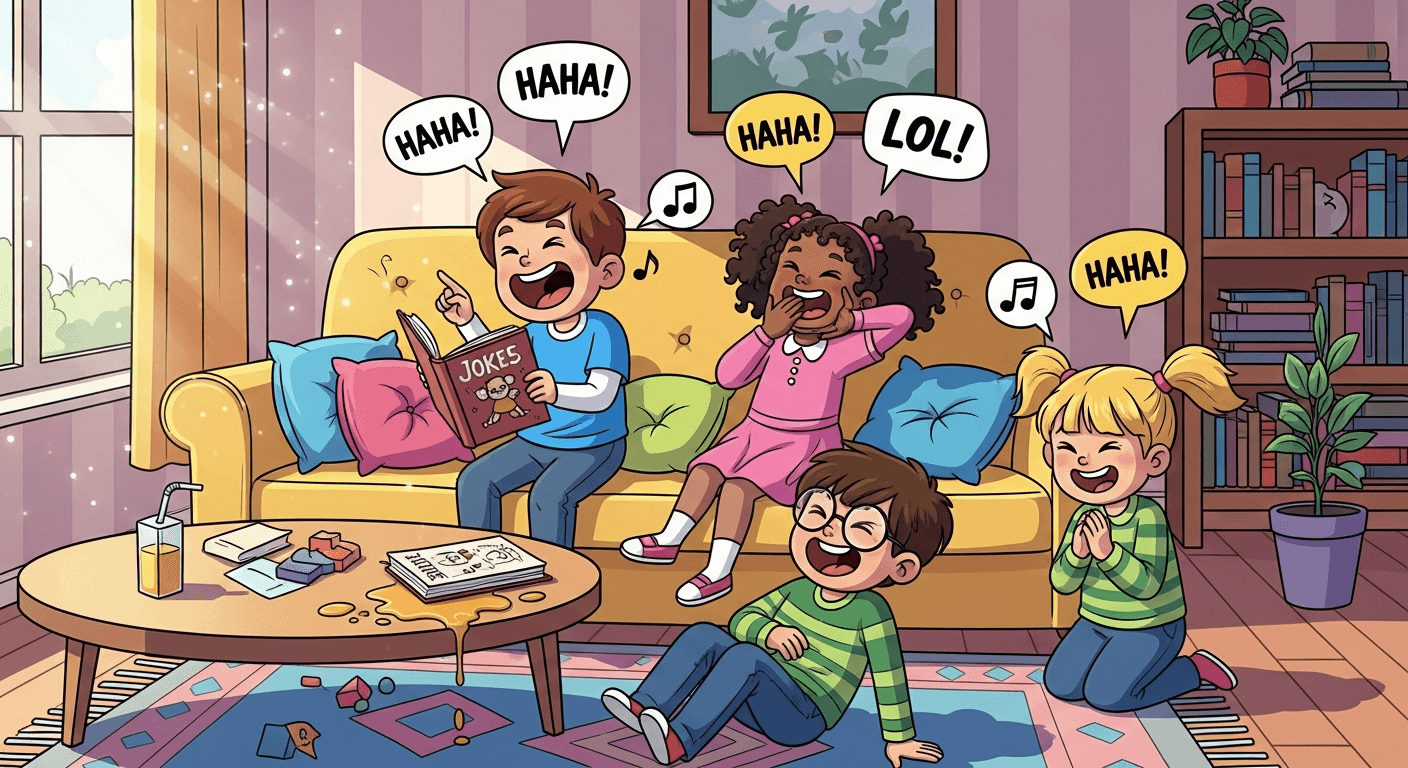The journey from simple unknowing to deliberate ignorance represents one of humanity’s most fascinating intellectual trajectories. What began as a neutral description of someone lacking information has transformed into a charged accusation that cuts to the core of one’s character and moral standing in today’s digital discourse landscape.
Key Takeaways
- The word “ignorance” has evolved from its neutral Latin origins meaning “to not know” to becoming a serious character indictment in modern discourse
- There are distinct types of ignorance: passive (simply not knowing), willful (choosing not to know), and privileged (ignoring problems that don’t affect you personally)
- The Enlightenment period fundamentally changed how society viewed ignorance, transforming it from a neutral starting point to a moral failing
- Despite unprecedented access to information, many people still practice selective information exposure, with 44% of Americans admitting to avoiding news that contradicts their beliefs
- The “educated fool” paradox reveals how formal education without intellectual humility can lead to a false sense of knowing everything
The Power of ‘Ignorant’: From Description to Insult
Scroll through any heated Twitter debate or Facebook comment section, and you’ll likely encounter “ignorant” hurled as one of the most devastating character assassinations possible. This label has transcended its dictionary definition of simply “lacking knowledge” to become a sweeping judgment of someone’s worth and moral standing.
The transformation is striking when compared to its benign dictionary meaning. When celebrities, politicians, or everyday users get labeled as “ignorant” online, they’re not merely being told they lack information—they’re being categorically dismissed as unworthy of engagement.
Consider recent high-profile examples: climate change debates where skeptics are branded ignorant rather than uninformed, or cultural appropriation discussions where ignorance is treated as an unforgivable transgression rather than an educational opportunity. The accusation implies not just a lack of knowledge but a character defect that deserves public shaming.
This shift prompts an important question: When did not knowing something transform from a neutral state—a universal human condition—to a profound character flaw? The answer lies partly in how we’ve come to equate information access with moral obligation.
Unpacking Ignorance: When Not Knowing Becomes Willful
Not all ignorance is created equal. Philosophers and cognitive scientists distinguish between several fundamentally different types of not knowing, each with distinct ethical implications.
Passive ignorance—simply not yet having encountered certain information—represents the most innocent form. This is the student who hasn’t yet learned calculus, or the person who hasn’t heard about a recent news event—a neutral starting point that we all experience daily.
Willful ignorance, by contrast, involves actively choosing not to know. This occurs when someone deliberately avoids information that might challenge their existing beliefs or require uncomfortable action. According to Pew Research Center (2021), a striking 44% of Americans admit to avoiding news that contradicts their existing beliefs—a perfect example of willful ignorance in action.
The third type, privileged ignorance, represents the luxury of ignoring problems that don’t directly affect you. This is the person who can claim “I don’t see color” regarding racism or “I don’t follow politics” while benefiting from existing systems without examining them critically.
Legal systems have long recognized the moral dimension of ignorance through principles like “ignorantia juris non excusat”—ignorance of the law excuses not. This ancient principle recognizes that in certain contexts, not knowing carries responsibility regardless of intent.
Psychological research on confirmation bias explains why we’re prone to these behaviors. Our brains naturally seek information that confirms what we already believe while filtering out contradictory evidence—a cognitive shortcut that once helped our ancestors make quick decisions but now limits our intellectual growth.
From ‘Ignorare’ to Ignorance: The Etymology of Not Knowing
The word “ignorance” has a rich linguistic history that reveals much about how human cultures have conceptualized the state of not knowing. Its journey begins with the Latin verb ‘ignorare‘ which meant “to not know” or sometimes “to disregard”—a more neutral framing than our current understanding.
Breaking down the Latin root further reveals its components: ‘in-‘ (not) + ‘gnarus’ (knowing), stemming from the Indo-European root ‘*gno-‘ (to know). This same ancient root has spawned numerous knowledge-related terms across languages, including “gnosis” (knowledge), “agnostic” (without knowledge), and “recognize” (to know again).
The latin root for ignore reveals the original meaning was less about deliberately avoiding information and more about a simple absence of knowing. This neutral framing persisted through Classical and Medieval periods, where scholars like Socrates actually celebrated a certain kind of ignorance—the awareness of one’s own limitations expressed in his famous paradox, “I know that I know nothing.”
Medieval universities viewed ignorance as the natural starting condition from which learning began. Students weren’t shamed for not knowing—that was precisely why they had come to study. This perspective stands in stark contrast to our current view where ignorance is often treated as a moral failing rather than a universal human condition.
This gradual shift in meaning represents a classic example of semantic change in linguistics—specifically, the process called pejoration, where words acquire increasingly negative connotations over time. The history of ignorance demonstrates how our relationship with knowledge has evolved alongside our social and cultural values.
The Enlightenment Turn: When Not Knowing Became a Choice
The Enlightenment period (1685-1815) marked a revolutionary transformation in humanity’s relationship with knowledge. This intellectual movement, centered in Europe but with global implications, fundamentally altered how society viewed the state of not knowing.
Technology played a crucial role in this shift. By 1700, printing presses had put over 20 million books into circulation throughout Europe, making knowledge increasingly accessible to those outside traditional power structures. Knowledge was no longer exclusively the domain of the church and aristocracy but available to a growing middle class.
Enlightenment thinkers like Immanuel Kant defined this era as “mankind’s exit from self-imposed immaturity.” Kant argued that ignorance was no longer an inevitable condition but rather a choice—a failure to use one’s own understanding without the guidance of another. This perspective represented a radical departure from previous eras’ view of ignorance as simply the default human state.
As public education expanded and literacy rates rose, the social expectation that citizens should educate themselves gained momentum. Not knowing became increasingly associated with moral laziness rather than circumstance. This shift mirrors what linguists call pejoration—a process where words gain increasingly negative connotations over time.
The ignorance meaning evolved during this period from simply “lacking information” to carrying implications of willful refusal to learn. What had once been a neutral description of a universal human starting point became charged with judgment about one’s character and civic responsibility.
Beyond Ignorance: The Paradox of the Educated Fool
Perhaps the most curious development in our relationship with knowledge is the emergence of what might be called “the educated fool”—someone with extensive formal education or information access who nonetheless lacks wisdom, curiosity, or critical thinking abilities. This paradox reveals the crucial distinction between information accumulation and genuine understanding.
Today’s information landscape makes this phenomenon increasingly common. According to a USC study, the average person now consumes an astounding 34GB of data daily—more information in a day than someone from the 1800s might encounter in a year. Yet this information abundance hasn’t necessarily translated to greater wisdom or deeper understanding.
The educated fool might hold advanced degrees while remaining closed to new ideas, or consume news constantly while lacking the skills to evaluate sources critically. They might pride themselves on “doing their research” while actually engaging in selective information gathering that only reinforces existing beliefs.
This phenomenon connects to contemporary debates about expertise and anti-intellectualism. In a world where anyone can claim authority through a YouTube channel or blog, distinguishing between genuine expertise and confident ignorance becomes increasingly difficult. The problem isn’t access to facts but the development of wisdom to interpret them.
What separates the truly knowledgeable from the educated fool is intellectual humility—the awareness of what we don’t know. Paradoxically, as our knowledge grows, so too should our recognition of its limitations. The most profound wisdom often begins with acknowledging the vastness of our ignorance.
Cultivating Knowledge While Avoiding Foolishness
How do we navigate this treacherous middle ground between genuine ignorance and false certainty? The answer may lie in developing specific intellectual habits that foster authentic understanding rather than mere information collection.
First, we must embrace curiosity over certainty. The hallmark of intellectual growth isn’t having all the answers but asking better questions. Those who remain genuinely curious throughout life are less likely to fall into the educated fool trap.
Second, we can practice intellectual humility—recognizing the limits of our knowledge and remaining open to correction. This doesn’t mean lacking confidence but rather holding our beliefs with appropriate tentativeness proportional to the evidence.
Third, developing information literacy skills helps us evaluate sources critically. Not all information is created equal, and learning to distinguish between reliable and unreliable sources represents a crucial modern skill.
Finally, we can commit to engaging with diverse viewpoints, especially those that challenge our existing beliefs. Echo chambers and filter bubbles reinforce what we already think we know, while intellectual growth requires exposure to different perspectives.
These practices don’t guarantee wisdom, but they help us avoid both the shame of unnecessary ignorance and the hubris of thinking we know everything. The history of ignorance teaches us that true knowledge begins with recognizing how much we have yet to learn.
Sources
Etymology Online – Word Origin of Ignorant
Merriam-Webster Dictionary – Ignorance Definition
Stanford Encyclopedia of Philosophy – The Enlightenment
Pew Research Center – Americans and News Consumption Habits
USC Global Business – Information Consumption Study

